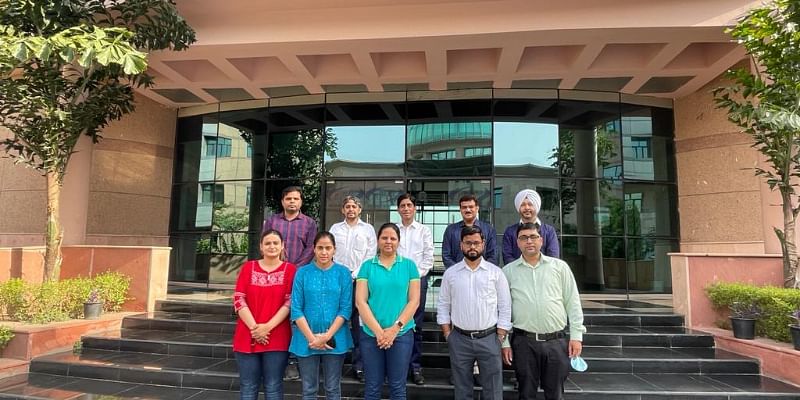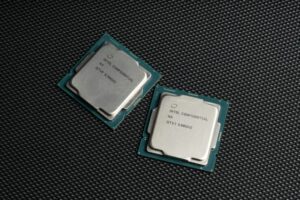According to the World Health Organization, despite being a preventable and curable disease, 1.5 million people die from TB each year – making it the world’s top infectious killer.
India, which bears a disproportionately large burden of the world’s TB cases, recorded 24 lakh tuberculosis cases and more than 79,000 deaths due to the disease in 2019. Data from the Indian Journal of Community Medicine reveals about 4.8 lakh people lose their life to TB in India every year.
The statistics are especially alarming because TB can be cured if diagnosed and treated in time.
[Image Credit: NextGen InVitro Diagnostics}
Gurugram-based medtech startup NextGen InVitro Diagnostics (NGIVD) is working to solve this problem. With a focus on diagnosing tuberculosis, the startup aims to provide affordable and accurate diagnoses of infectious diseases.
Founded in 2015 by Sushil Mehta, Varun Chopra, Dr Pravin Kini, Srinivas Aluri Rao, TV Rajan, and Ashok Jain, NGIVD is developing a diagnostic test kit for tuberculosis.
“Roughly about 25 percent of global TB cases exist in India, and we have both forms of the disease – pulmonary and extrapulmonary. The challenge was that existing diagnostic tests are not sensitive enough and result in a lot of false negatives, delaying diagnosis and treatment,” Sushil tells YourStory.
Amid the COVID-19 pandemic, the startup recently got approval for its multiplex RT-PCR test named COVSCAN qPCR-96 and an antigen test. The research and development startup is now looking to partner with manufacturing companies to launch the product.
Using multiplexing technology
Sushil says NGIVD operates as an innovation-based R&D company that focuses on using multiplexing technology for point-of-care diagnosis of infectious diseases.
Multiplexing technology enables the detection of multiple disease biomarkers using a single sample.
“We began doing clinical trials for our product code, named RU-1, about two years back, and have completed testing on about 400 samples. However, we have been facing a challenge since the pandemic as testing of other diseases has taken a back seat due to COVID-19. Things have started picking up now, and we expect to complete our study in the next three months and present the data to ICMR,” he says.
According to the founder, RU-1’s total run time is approximately three hours and 94 samples, including controls, can be tested at one go. “In a 12-hour operation time, 376-400 samples can be done in a day with a single machine,” he says.
Apart from this, the company also launched the TB-Lamp solution in India, in partnership with Germany-based Human Diagnostics Worldwide. The product enables easy DNA extraction and faster diagnoses of TB. According to Sushil, the WHO-approved product is manufactured by Japan-based ICON, which has given global marketing rights to Human Diagnostics.
“We introduced the product in India one and a half to two years back and have seven or eight installations across hospitals and clinics already,” Sushil says.
Apart from TB, the startup is also working on a diagnostic product for Leishmaniasis, an infectious disease caused by Leishmania parasites. It is also working on another product named Multiplex Fever Panel, which will help in the rapid diagnosis of fever-related diseases such as malaria, dengue, typhoid among others.
Illustration: YS Design
Business and more
Sushil says NextGen now has to bridge the gap between research and manufacturing. He adds that the startup is considering whether to partner with manufacturers or set up its own manufacturing facility to launch products in the market for hospitals and clinical use.
“Since the inception of the company, we have invested about $2.5 million into the company. Now, we are looking at raising external capital in the next nine to 12 months to strengthen manufacturing and R&D,” he adds.
Incubated at C-CAMP and BSC BioNEST Bio-Incubator, the company raised undisclosed seed capital from a clutch of investors.
According to a report by Transparency Market Research, the global multiplexed diagnostics market was valued at $8.7 billion in 2018 and is expected to grow at a CAGR of 17.9 percent from 2019 to 2027.
With TB continuing to be a major problem, Prime Minister Narendra Modi’s government is working to help realise his vision of a Tuberculosis-Free India by 2025. Several private players, Docturnal, AarogyaAI Innovations, and DeepTek among others, are also working to find diagnostics solutions for timely detection of the disease.
“In the long term, we see ourselves as the drivers of innovations of diagnosis and be a contributor to the Make In India initiative,” Sushil says.










